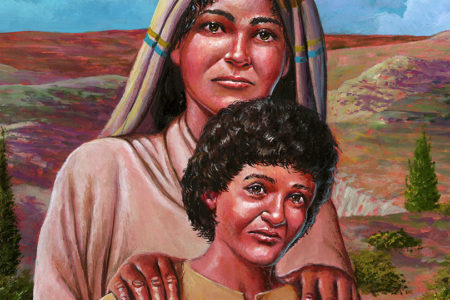Christian Reconstructionism
Introduction
During the 1960s a new movement began within the sphere of Reformed or Covenant Theology. That movement has been called by three different names: Reconstructionism (because it advocates the reconstruction of society), Dominion Theology (because its theology teaches that biblical Christianity is to rule every sphere of society), and Theonomy (a combination of two Greek words—theos [God] and nomos [law]—because it asserts that all of society is to be brought into obedience to the Mosaic Law).
It should be noted that this movement is not advocated by everyone within the realm of Reformed or Covenant Theology.
Leaders and Organizations of Reconstructionism
The patriarch of Reconstructionism is Rousas J. Rushdoony, a prolific writer of books and the founder (in 1965) of the Chalcedon Foundation in Vallecito, California. This organization publishes the Journal of Christian Reconstruction. Rushdoony’s two volume Institutes of Biblical Laws is an extensive study of how the Ten Commandments could be applied to modern society.
Other leaders of the movement include Gary North, founder of the Institute for Christian Economics in Tyler, Texas; Greg Bahnsen, pastor of an Orthodox Presbyterian Church in California, and author of Theonomy in Christian Ethics, a book that advocates the application of the Mosaic Law to every sphere of American life; David Chilton, a pastor in Placerville, California, and Reconstructionism’s key writer in eschatology; Joseph C. Morecraft III, pastor of Chalcedon Presbyterian Church in Atlanta, Georgia; and Ray Sutton, pastor of Good Shepherd Episcopal Church in Tyler, Texas, and author of That You May Prosper, a book that is highly regarded within the movement as an exceptional work on covenants. Another key organization within Reconstructionism is Geneva Ministries in Tyler, Texas.
The Reconstructionist View of History
At the heart of Reconstructionism’s system of belief is a postmillennial view of eschatology. Postmillennialists believe that Christ will return to earth in His Second Coming after the Millennium. In order to understand the Reconstructionist form of postmillennialism, it is necessary to begin with the movement’s view of creation.
Reconstructionism asserts that at creation God issued to Adam a cultural or dominion mandate to subdue the earth on behalf of God and thereby establish the Kingdom of God on earth (Gen. 1:28). This mandate was an eternally binding covenant upon Adam and his descendants. As a result of the fall, Adam failed to keep this covenant mandate, thereby selling his birthright to Satan, who then began to dominate many things in the world. This domination has included control of the nations.
God gave further revelation of this covenant mandate to Noah and Abraham, but its ultimate, fullest revelation and how it is to be executed were found in the Mosaic Law given by God to the nation of Israel. Israel was responsible to obey the Mosaic Law, and God intended the Gentile nations around Israel to adopt it as well. If Israel and the Gentile nations had done this, the covenant mandate to bring the entire world under God’s rule would have been fulfilled, and the Kingdom of God would have been established on earth. However, the Gentile nations did not adopt the Mosaic Law, and Israel continued to disobey it. Thus, Israel and the Gentiles failed to keep the covenant mandate, just as Adam did.
The failures by Adam, Israel, and the Gentile nations did not destroy God’s plan to bring the entire world under His rule and thereby establish the Kingdom of God on earth. In fulfillment of His Genesis 3:15 promise of a Redeemer, God sent the last Adam, Jesus Christ, into the world to do what the first Adam, Israel and the Gentile nations had failed to do. According to Matthew 5:17–19, during His first coming Jesus “established and restored” the Mosaic Law “to full measure as the rule of life for believers as well as society.”
Through His atoning death, resurrection, and ascension, Christ defeated and bound Satan and his demons in a definitive way, thereby causing them to lose their stranglehold on the world. Although they remain active in the world, their activity is restricted. The most they can do is delay the progressive establishment of God’s Kingdom on earth through the ignorance and unfaithfulness of God’s covenant people.
Through His life, death, resurrection, and ascension, Christ also established in a “definitive” way the Kingdom of God, which God, through an eternal covenant at creation, mandated Adam and his descendants to establish and which God foretold through the Old Testament prophets. At His ascension to Heaven “with the clouds of heaven,” Jesus received the Kingdom from the Father in fulfillment of Daniel 7:13–14. Thus, the present age is the Kingdom age—the Kingdom is now.
Although Christ definitely established the Kingdom of God on earth in conjunction with His first coming, that Kingdom has not yet developed fully. It is destined to take over all the nations of the world, but it is accomplishing this by advancing Christ’s rule progressively through stages of development from the time of His ascension to the end of the world. The last stage of that development will be the millennial stage. When every sphere of society, every nation, and the entire earth have been subjected to the rule of Christ by the end of history, the Kingdom of God will have been established fully and finally on earth, and Christ will return in His Second Coming on the last day to receive His Kingdom.
During the present age of history, Christ (from His position in Heaven) is expanding His kingdom rule through the faithful obedience to the eternal covenant mandate (which He gave at creation) by an earthly representative group. That group is His covenant people.
God’s Old Testament covenant people, the nation of Israel, failed to fulfill the covenant mandate given at creation. Instead of expanding God’s rule, Israel stubbornly rebelled against it by persistently breaking the Mosaic Law, which climaxed in Israel’s rejection of God’s Messiah-Redeemer, Jesus Christ. Because of this rebellious failure, God permanently excommunicated the nation of Israel from its covenant position. He divorced Israel forever as His covenant people, as evidenced by His destruction of Israel as a nation through the Romans in 70 A.D. Although most individual Jews will be saved, together with most Gentiles, as the Kingdom of God expands its influence over the world, Israel as a nation will never be restored to its former covenant status. God has no special program for Israel in the future.
God replaced Israel with a new group as His covenant people. That new group is the Church. During the present Kingdom age, the Church is the new spiritual Israel. The material blessings for obedience to the Mosaic Law and the curses for disobedience, both of which belonged to national Israel, have now been inherited by the Church. The Church also owns God’s future promises to national Israel. In contrast with national Israel, which failed, the new spiritual Israel will succeed in accomplishing God’s program for history. The Church is destined to fulfill the covenant mandate given at creation because it is empowered by the Holy Spirit. After Christ ascended to Heaven, He poured out the Spirit with His Kingdom power upon His new covenant people (Acts 1:8). As a result, the Church will never be excommunicated from its covenant position, as national Israel was.
In light of its responsibility to fulfill God’s covenant cultural mandate, the goal of the Church could be stated in the following ways: The “Cultural Christianization” of the world; “to conquer the whole world for Jesus Christ” “to work toward the creation of a one-world Christian order” “the complete social transformation of the entire world” “‘world dominion under Christ’s lordship, a ‘world takeover’” “to impress heaven’s pattern on earth” to “take authority over the nations with the applied rule of Christ and Jesus” and to establish a “Christocracy.”
The Great Commission (Mt. 28:18–20) is the marching orders for the Church. It is the New Covenant update or recapitulation of the cultural or dominion mandate given at creation. In the Great Commission, Christ commanded the Church not only to win individual souls to Him but also to Christianize culture worldwide.
Personal redemption is not the do–all and end–all of the Great Commission. Thus, our evangelism must include sociology as well as salvation; it must include reform and redemption, culture and conversion, a new social order as well as a new birth, a revolution as well as a regeneration. Any other kind of evangelism is short-sighted and woefully impotent. Any other kind of evangelism fails to live up to the high call of the Great Commission.
This Christianization of culture involves the transformation of every nation into a Christian nation. Today national governments are controlled by Satan. Every national government must be converted to an alliance with Christ—a theocratic republic—through the subjection of all of its structures to Christ’s rule. In addition to civil government, every other sphere of society (“self, family, institutional church, businesses/vocations, private associations”) must be conformed to the rule of Christ.
…international theocracy is exactly what the Bible requires … Every nation is as much under God’s sovereign rule as every individual is. The goal of the gospel is to subdue every soul, every institution, and every nation under God … Just as every redeemed individual is told by God to conform himself to the image of Christ, as perfect humanity … so is every human institution, including every nation … especially since Christ commanded the disciples to disciple the nations—not simply hearts, minds, souls, families, and local churches, but nations (Matthew 28:18–20) … to exercise covenant control of every civil government.
“Anything short of that is not the Gospel.”
In order for the dominion mandate, or Great Commission, to be fulfilled, three things must happen.
First, the vast majority of people must experience true Christian conversion through the worldwide proclamation of the Christian message of redemption and the regenerating work of the Holy Spirit. For the reconstructed society to work, the great majority of people must be capable of governing themselves. Only regenerated people have that ability; non-Christians do not.
Second, Christians must take over the rule of every sphere of society, including the rule of individuals, institutions, and nations. This means that Christians must be political and social activists. They cannot fulfill Christ’s commission to disciple the world if they are not ruling it.
Third, as Christians take over the rule of the world, they must subject every sphere of society to the biblical law found in the Old Testament, especially all the moral and civil aspects of the Mosaic Law that God gave to Israel at Mount Sinai. This is necessary to save the world from destruction. God intends the Mosaic Law to be the rule of life for all people, in every culture, in every age of history. In fact, the unchangeableness of God requires that the Mosaic code be enforced in all cultures at all times. Obedience to it is guaranteed to bring peace and prosperity, but disobedience will inevitably bring cursing. Only as the Mosaic Law is enforced worldwide will the dominion mandate given at creation be fulfilled.
This enforcement of the Mosaic Law will involve the application of the death penalty for such capital crimes as murder, rape, kidnapping, bestiality, incest, adultery, fornication, homosexuality, idolatry, witchcraft, the offering of human sacrifice, unchangeable rebellion in adolescent children, flagrant negligence resulting in the death of another person, blasphemy, apostasy, the spreading of false doctrines, and perhaps Sabbath breaking.
The reconstructed society will regard dissenters and heretics as treasonous criminals at war with the law and society. It will turn such people over to the civil authorities for judgment. Some will be imprisoned, lose citizenship and many rights, and perhaps suffer greater penalties.
The reconstructed society will be characterized by the rights of private property, a free market economy bordering on libertarianism, tight limitations on debt, the abolition of 30-year mortgages, a monetary system based on the gold standard, the tithe rather than public taxes financing most social welfare, restitution of wrong rather than imprisonment for many criminals, and voluntary slavery for purposes such as the restitution of a wrong or the desire for financial security.
The Optimism and Appeal of Reconstructionism
Some reconstructionists claim that the task of progressively building the Kingdom of God on earth will not be completed for at least one thousand or more years and that, therefore, the Second Coming of Christ cannot take place before then. One goes so far as to say that it will take a minimum of 36,000 and perhaps as many as one million years. In spite of these estimates, which for many people could be quite discouraging, reconstructionists are very optimistic about attaining their goal. They believe that the Scriptures teach that the Great Commission (as they understand it) will be fulfilled during the present Church age. One reconstructionist asserts,
World conditions will gradually improve in the long run as the Spirit-empowered converts faithfully and vigorously begin applying the whole counsel of God to all of life. Before the Lord’s return the world will be dominated by the Christian message and the vast majority of mankind will be converted.
Another declares, “We must change the world; and what is more, we shall change the world.”
As has been noted, Reconstructionism has developed a postmillennial philosophy of history, which it claims to be the biblical philosophy of history. Because it claims a biblical philosophy, and because it offers an optimistic view of the Church’s ability to change the world, Reconstructionism appeals to an interesting spectrum of Christians. Although the movement began within the camp of Calvinistic, Reformed, Covenant Theology Christianity, it has made a significant impact upon some fundamentalists, some mainline evangelical leaders, and a considerable group of charismatics (especially the “positive confession” or “name it and claim it” charismatics; as many as 20 million charismatics are Reconstructionists, according to one Reconstructionist leader). Not all of these people have adopted the entire Reconstructionist system, but they have found themselves in agreement with some Reconstructionist thoughts, particularly those related to economics, the moral decay of society, and the need for Christians to exert influence in the realm of politics.
The Reconstructionist postmillennial approach to history has prompted its adherents to adopt some interesting beliefs and interpretations of the Scriptures. The next article in this series will present those beliefs and interpretations.
Author’s Note:
The information in this article has been derived from the following book: Dominion Theology: Blessing or Curse? by H. Wayne House and Thomas D. Ice, copyright 1988 by H. Wayne House and Thomas D. Ice. Published by Multnomah Press, Portland, Oregon 97266. Used by permission. This book is an excellent, thorough examination and critique of the Christian Reconstruction movement. It is highly recommended.






